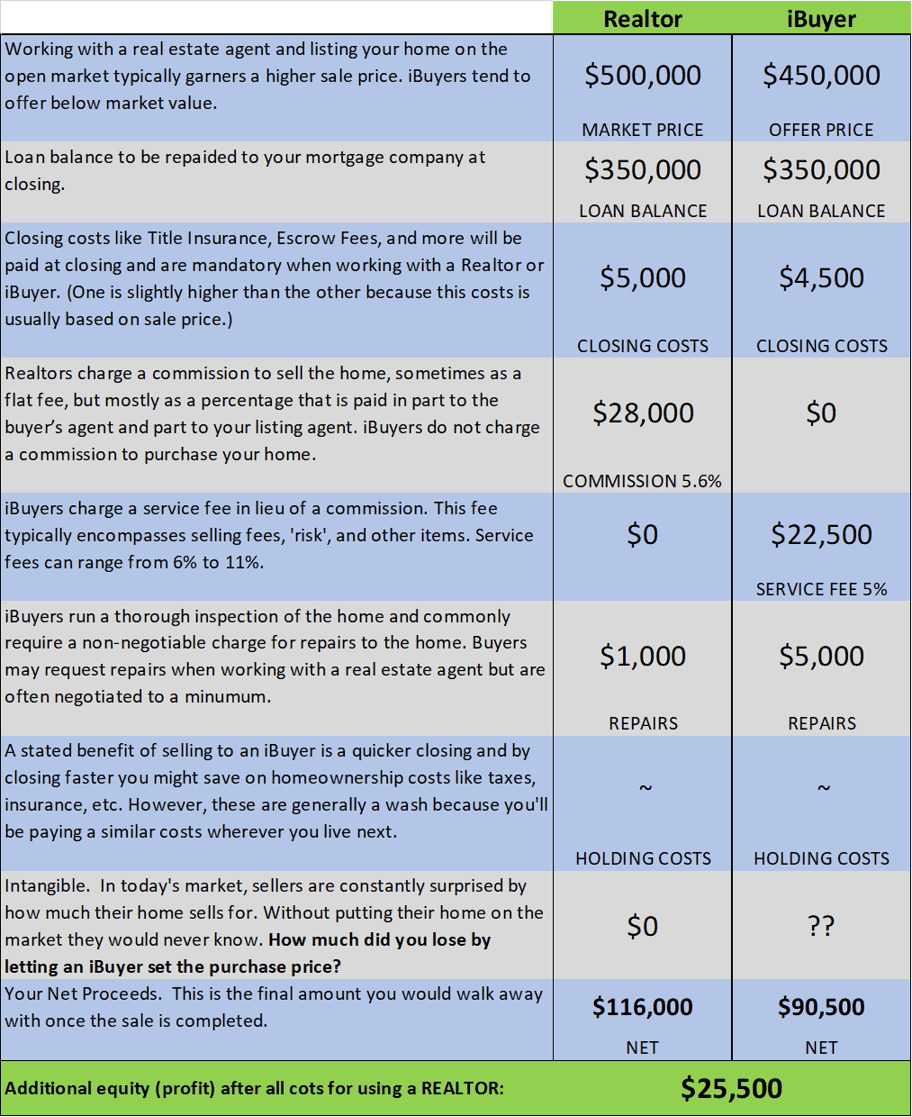iBuyer Programs – Worth it?
Clients are asking us about advertisements they’ve seen on TV offering to buy homes sight-unseen. Companies like Opendoor, OfferPad, Zillow Offers, Orchard, and others encourage you to ‘skip the hard part’ and ‘sell it your way’. But should sellers seriously consider these options? For most sellers, the answer is NO.
Unfortunately, the advertising for these programs attempts to convince you that this is ‘The new way to sell homes’ as if everyone should consider it. It is not and only a few should.
What Are These Programs
iBuyer or Instant Buyer programs offer to buy a home sight unseen, pay cash and close quickly. They are the brainchild of real estate investment companies. Their goal is to make a profit by paying the least they can for your home. They pay below market price and either keep the property as a rental or they immediately resell it.
iBuyer programs can potentially help some sellers in niche circumstances. Some reasons might include a need to sell urgently, an inability to prepare the home for sale, or when a seller doesn’t want to allow showings (maybe for health reasons). However, this convenience costs between 10-20% of your equity, so most homeowners would not choose this option.
Things to Consider
- Eligibility— the iBuying model relies on quick resale, so iBuyers make offers on homes they feel will resell quickly, for at least a 5-10-15% profit. In other words, a home YOU could sell quickly for a profit.
- The offer price is typically 5-10% below market value. Since homes are now selling at 3-5% above market value, the seller loses 8-15% off the top.
- That loss is actually bigger than you think because iBuyer offers are typically based on online estimates, which are now 8-21% too low.
- These programs now commonly charge 5% service fees that offset would-be real estate broker fees. So, there is no financial benefit.
- Further, giving up your real estate agent means giving up your knowledgeable advocate. As helpful as they may be on the phone, iBuyers are NOT your advocate - they are your buyers. They are on the OTHER side of the table. ...And they are professional investors so they are experienced, shrewd, and are focused on maximizing their profit. Are you ready for that?
- Buyers get to inspect properties and have the opportunity to ask sellers for repairs. An agent negotiates with the buyers to minimize, eliminate, or best work out any such requests. iBuyer programs don’t negotiate. They inspect then come back with a list of repairs and estimates of cost. Most sellers feel forced to agree. Then, instead of doing the repairs themselves, they concede by lowering the purchase price by the amount of the repair estimate.
- Some programs advertise sweeteners like paying for local moving, picking your closing day, extending your stay to make moving easier. These are helpful but are no different than most agents offer.
Here is a cost comparison example.
There are more reasons to be cautious about iBuyer programs. I strongly recommend that you speak to a knowledgeable broker before selling your house this way. In almost all cases, homeowners can sell their home nearly as fast, as easily, with far greater confidence, and for far more money by using a good real estate agent.
All the Best,
Brian










